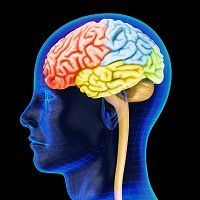Article
Mindfulness-Based Therapy Prevents Depression Relapse
Author(s):
The first large study to compare mindfulness-based cognitive therapy (MBCT)-a psychological therapy designed to change the way people think and feel about their experiences-with maintenance antidepressant medication suggests that MBCT could offer an alternative to antidepressants for preventing depression relapse.

The first large study to compare mindfulness-based cognitive therapy (MBCT)—a psychological therapy designed to change the way people think and feel about their experiences—with maintenance antidepressant medication suggests that MBCT could offer an alternative to antidepressants for preventing depression relapse.
The study investigators aimed to determine whether MBCT with support to taper or discontinue antidepressant treatment (MBCT-TS) was superior to maintenance antidepressants for preventing depression relapse or recurrence over 2 years. Although the study did not provide this finding, the results do suggest that MBCT appears to offer similar protection against depression relapse or recurrence as maintenance antidepressants for patients who have experienced multiple episodes of depression, and with similar associated costs.
“Depression is a recurrent disorder,” said lead author Willem Kuyken, PhD, Professor of Clinical Psychology, Department of Psychiatry, Medical Sciences Division, University of Oxford, Oxford, UK. “Without ongoing treatment, as many as four out of five people with depression relapse at some point.” Kuyken and colleagues had their study published online on April 20, 2015 in The Lancet.
“Currently, maintenance antidepressant medication is the key treatment for preventing relapse, reducing the likelihood of relapse or recurrence by up to two-thirds when taken correctly,” added study co-author Richard Byng, PhD, professor in Primary Care Research, Centre for Clincal Trials & Health Research — Translational & Stratified Medicine, Peninsula Schools of Medicine and Dentistry, Plymouth University, UK. “However, there are many people who, for a number of different reasons, are unable to keep on a course of medication for depression. Moreover, many people do not wish to remain on medication for indefinite periods, or cannot tolerate its side effects.”
For the single-blind, parallel group, randomized control trial, 424 adults with three or more previous major depressive episodes and whom were on a therapeutic dose of maintenance antidepressants were randomly assigned to either MBCT-TS or their baseline maintenance antidepressant. Those randomized to the MBCT group attended eight 2.5-hour group sessions, received daily home practice, and had the option of attending four follow-up sessions over 12 months. Guided mindfulness practices, group discussions, and other cognitive behavioral exercises formed the core of the MBCT course. Participants in the maintenance antidepressant group continued their medication for 2 years. All participants were assessed regularly during the study for a major depressive episode using the Structured Clinical Interview for DSM-IV.
The time to relapse or recurrence of depression did not differ between MBCT-TS and maintenance antidepressant treatment over the 24-month study, nor did the relapse rates (44% in the MBCT group, 47% in the maintenance antidepressant medication group). Five adverse events were reported, including two deaths, in each group. However, none were deemed to be attributable to the interventions or the trial.
“As a group intervention, mindfulness-based cognitive therapy was relatively low cost compared to therapies provided on an individual basis,” said co-author Sarah Byford, Professor of Health Economics, Department of Health Services & Population Research, King’s College, London, UK, “and in terms of the cost of all health and social care services used by participants during the study, we found no significant difference between the two treatments.”
Kuyken added that although “this study doesn't show that mindfulness-based cognitive therapy works any better than maintenance antidepressant medication in reducing the rate of relapse in depression, we believe these results suggest a new choice for the millions of people with recurrent depression on repeat prescriptions.”
To provide the patient’s perspective, study participant Nigel Redd, Sidmouth, Devon, UK said, “Mindfulness gives me a set of skills which I use to keep well in the long term. Rather than relying on the continuing use of antidepressants mindfulness puts me in charge, allowing me to take control of my own future, to spot when I am at risk and to make the changes I need to stay well.”





